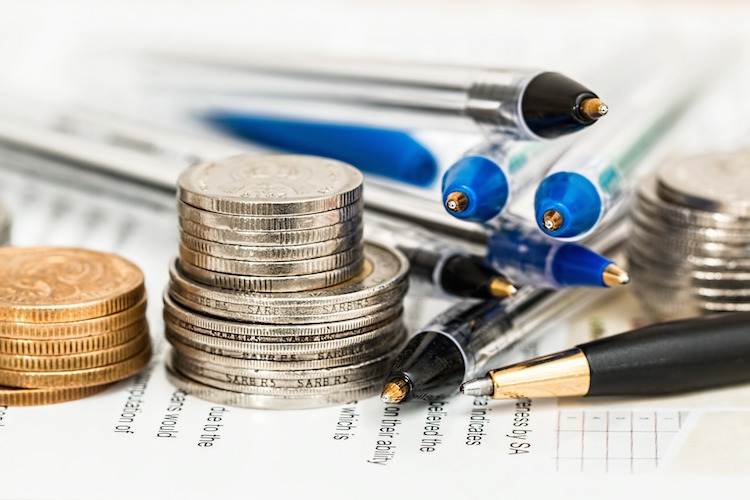Money is something we spend a lot of time worrying about. Is saving money really as difficult as we think it is? Not if we take the right steps to keep better track of how much we are spending and set goals for how much money we want to save. Here are ten money saving tips and tricks to help you worry less about what is (or is not) in your bank account.
1. Drink more water
You probably don’t even realize how much you spend on soda, juice and caffeinated beverages, both in your own home and around town. A medium sized specialty drink at Starbucks can come out to over five dollars, and cans of soda don’t give you very much value for what you spend on a twelve pack. You are much better off, in the long term, settling for tap water and a water filter to keep yourself hydrated. Over time, you will save plenty of money, and you will probably be a little healthier, too.
2. Buy generic
Brand names are more expensive to purchase, whether it be clothing, food or other items. Stores often sell brand name items and then much cheaper generic brands. These generic brands are more affordable and more worth your money, because they are pretty much the exact same as their brand name versions, sometimes even better.
3. Keep track of both spending and savings
Establishing and keeping up with a budget does not have to be stressful. Some people are extremely goal driven, which means they might actually enjoy keeping track of their spending and savings because it’s a little bit like setting and trying to exceed specific numeric goals. Keep track of where your money is going and how much you are putting into which type of item (i.e., groceries, entertainment, other necessities). Also keep track of how much money you are saving to keep yourself motivated to save much more than you spend.
4. Give yourself a monthly spending limit
It is probably a good idea, if you want to make sure you are saving money, to give yourself a limit on how much money you actually plan on spending. Give yourself a weekly or monthly spending limit and do what you can to make sure not to go over that limit. After a few months, you will probably notice that it gets much easier to spend less money than you are used to. Having money to spare, just in case, is a lot more rewarding than spending it all on things you don’t really need.
5. Establish a monthly savings goal
Also give yourself a goal for how much money you want to try and save each week or every month. This is probably money you are going to end up setting aside for something specific, even if you do not have anything specific in mind at the start. If you can meet weekly or monthly savings goals, you will not only have money tucked away for emergencies or other uses, but you will also begin to feel more confident in your ability to save money instead of spend everything you earn.
6. Save all of your loose change
Each time you use cash to make a purchase, you will likely be given change back. Do not let that change just sit at the bottom of your wallet. Instead, keep all the loose change you find or are handed back in a jar or other type of container. Over time, you will collect possibly hundreds of dollars worth of change which you can then deposit into your savings account several times a year.
7. Make a list before you shop, and stick to the list
It is possible to eat well and save money on groceries at the same time. The best way you can train yourself to do this is to make a detailed list of each item you need to buy before you go to the store. Never show up without a list, or you will end up buying more items than you actually need to spend money on. Once you arrive with your list in hand, buy the items on that list, and nothing more. If you want to reward yourself with something special, make sure it is on the list. Anything that didn’t make it on the list before you get there, leave on the shelf.
8. Eat out only once or twice a month
Eating out at restaurants is expensive. If it is something you enjoy or a way you socialize with friends and family, plan a few days throughout the month where you treat yourself. Eating or ordering out once a week or more can add up to hundreds of extra dollars spent on food per month, which is completely unnecessary when you can make virtually the same food you might get at a restaurant at home for much, much cheaper.
9. Start your own garden
Gardening is great not just for your mental and physical health, but for your financial health as well. Produce, especially organic produce, can seem expensive if you are used to buying more junk food than fruits and vegetables. You can grow your own herbs and many types of produce in your backyard, in window boxes and even in your basement if you have the right setup. Over time, growing and consuming your own produce will save you plenty of money, and you might find you enjoy the practice, too.
10. Always keep an eye out for free community events
Some communities offer free events to entertain residents and promote certain causes and organizations, especially in the summer. There could be free concerts, outdoor movies and food festivals you never even knew about. Entertainment for free is not always easy to come by, so be on the lookout for these kinds of events. They are not only enjoyable, but they will save you money, too.
How much you spend and how much you save every month depends completely on what you are willing to do to keep your savings above your spending. Follow the tips above to help you be smarter with your money.







